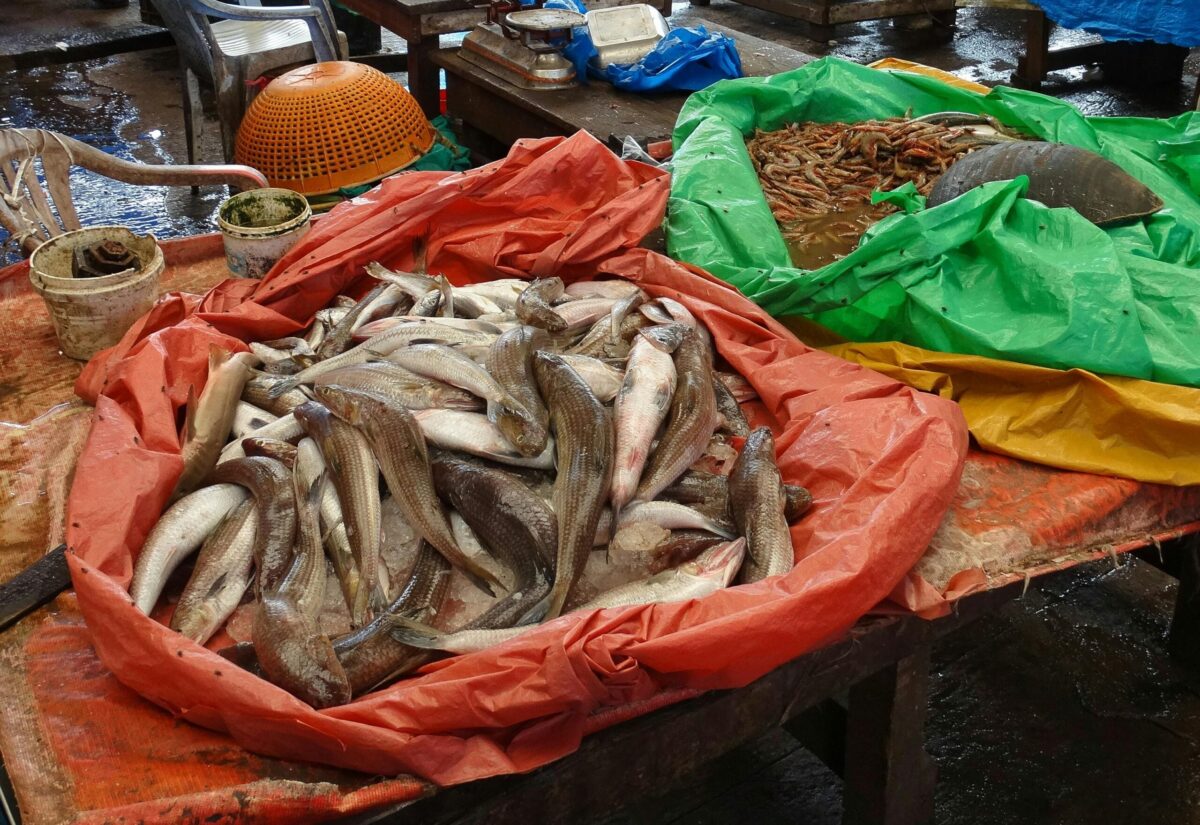Mangalore: The marine fish production in Dakshina Kannada has witnessed a significant decline of 28.04% in the last financial year, raising serious concerns about the sustainability of coastal fisheries. According to D. Siddaiah, Joint Director of the State Department of Fisheries, the total marine catch in the region fell to 1.72 lakh tonnes in 2024-25, down from 2.39 lakh tonnes in 2023-24.
This sharp drop in fish catch has alarmed stakeholders across the fisheries sector. Experts attribute the fall to a combination of climate change, illegal fishing practices, overfishing, and the use of destructive techniques such as bull trawling.
Key Factors Behind the Decline
One of the most concerning issues is the rising sea temperature, which has been disrupting fish breeding patterns and migration. In addition, illegal fishing using lights at night and overexploitation of fish stocks are being blamed for the declining marine biodiversity. Bull trawling, which damages the ocean floor and disrupts ecosystems, continues to be practiced despite being banned in many areas.
Call for a Uniform Three-Month Fishing Ban
To address this growing crisis in marine fish production in Dakshina Kannada and neighboring regions, Mr. Siddaiah has strongly advocated for a uniform three-month fishing ban along the entire West Coast of India. Currently, the ban is imposed for two months (June and July), which coincides with the peak breeding season for many fish species. Extending the ban through August could give fish stocks more time to recover, ensuring long-term sustainability.
“All West Coast states need to reach a consensus and enforce the same closed season to prevent overfishing,” said Siddaiah. “Extending the ban will significantly boost fish production in the following season.”
Industry Voices Support the Proposal
Nitin Kumar, former Chairman of the Karnataka Fisheries Development Corporation, echoed the need for coordinated action. He stressed the urgent need to clamp down on unscientific and illegal fishing activities, which continue unabated along the West Coast.
“Currently, about 70% of trawling boats in Mangaluru are docked due to lack of catch,” Kumar revealed. “Deep sea fishing had a good yield in August and September of the 2024-25 season, but the catch declined steadily afterward. Expectations of a rebound in January never materialized.”
Statewide Fish Production Also Down
The decline is not limited to Dakshina Kannada. According to official data, total fish production in Karnataka fell from 12.24 lakh tonnes in 2022-23 to 9.75 lakh tonnes in 2023-24. Of this, marine fish production dropped from 7.30 lakh tonnes to 5.42 lakh tonnes, indicating a widespread issue across the coastal belt.
Long-Term Challenges: Overcapacity and Pollution
A 2021 report titled “Rapid Assessment of Blue Economy Potential in Karnataka” by the College of Fisheries, Mangaluru highlighted deeper structural issues affecting the marine ecosystem. The report warned about unsustainable growth in the number of fishing vessels and destructive fishing methods that have contributed to the depletion of commercially important fish species.
It also emphasized the demand from the fish meal industry, which puts additional pressure on already fragile stocks. The absence of uniform fishing policies and enforcement mechanisms between neighboring states has further complicated conservation efforts.
Marine Pollution – A Silent Killer
Marine pollution remains a major, yet often overlooked, threat. The same report underlined that toxic waste, habitat destruction, and pollutants in coastal waters have serious effects on marine life. These include reduced growth, impaired reproduction, increased disease susceptibility, and bioaccumulation of toxins in seafood consumed by humans.
Conclusion
The sharp decline in marine fish production in Dakshina Kannada is a clear indicator that urgent and coordinated actions are needed to protect coastal marine ecosystems. Stakeholders must focus on sustainable fishing practices, enforce uniform fishing bans, and tackle marine pollution to secure the livelihoods of fishermen and preserve ocean biodiversity for future generations.




